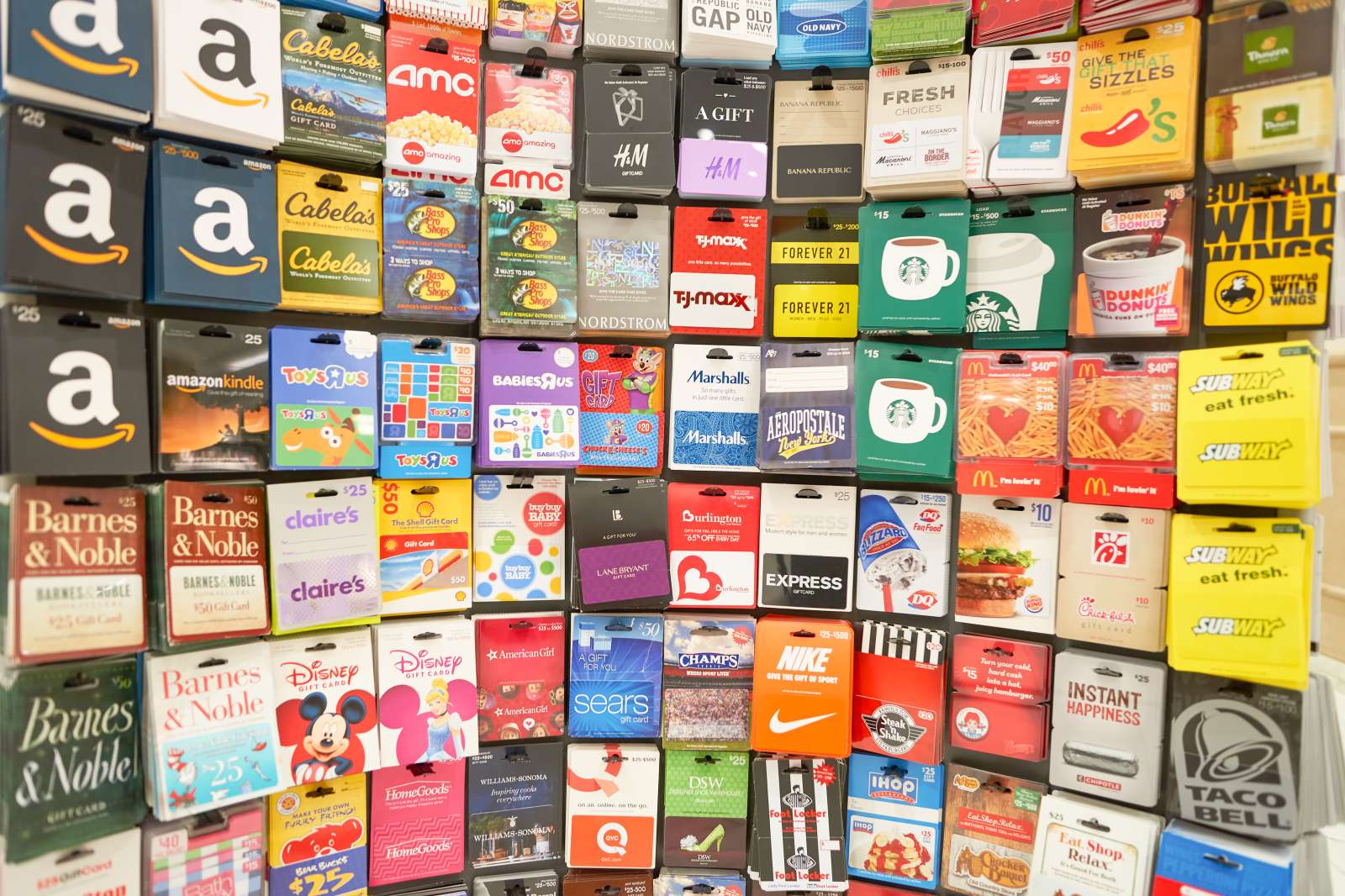Table of Contents
Did you know that the global gift card market is expected to surpass $1.4 trillion growing at a CAGR of 11.1% over the analysis period. This rapid growth highlights how much gift cards have transformed the way people shop, spend and gift. At the same time, cash remains deeply rooted in everyday transactions offering instant value and universal acceptance.
While both options are widely available, it is no surprise that many people find themselves debating which one is truly better. This discussion often comes down to convenience versus flexibility. Gift cards provide a modern digital friendly way to shop or send value but they usually come with restrictions on where they can be used. Cash on the other hand is known to be timeless, usable anywhere and at any time yet it lacks the extra perks or protections that gift cards sometimes offer.
This balance of pros and cons has made the comparison a common conversation among consumers. To make things easier, this article breaks down the features of gift cards and cash payments, compares their strengths and explores the situation where each method proves to be better.
What Are Gift Cards?

Gift cards are prepaid cards that hold a specific monetary value. They are used by a growing number of the world populace to make purchases at designated retailers, platforms or in some cases across multiple stores. They serve as a substitute for cash in controlled environments, giving users the ability to shop without carrying a physical money. For this, gift cards have become a popular choice for both personal use and as presents.
Gift cards usually come in physical and digital format. Physical gift cards resemble a plastic card and are often purchased in retail outlets or supermarkets while digital gift cards are delivered electronically and can be stored on mobile devices for quick access.
The appeal of gift cards lies in their convenience and security. They make gifting easier by giving recipients the freedom to choose what they want while still being more personal than handling cash. They also eliminate the risks of carrying large amounts of money.
What Are Cash Payments?
Cash payments refer to the direct exchange of physical money, coins and banknotes primarily for goods and services. It is the oldest and most traditional form of payment, trusted worldwide for its simplicity and immediate value. Cash requires no third party system, account setup or technology to complete a purchase.
One of the greatest strengths of cash is its universal acceptance. It is accepted by local street vendors, large retail stores, services and all. Cash works everywhere and is settled instantly without processing delays or extra charges. It also comes with no hidden restrictions. This makes it one of the most straightforward and transparent ways to pay.
However, cash is not without drawbacks. Carrying large amounts of money can be risky as it is prone to loss or theft and offers no way to recover funds once misplaced. Cash payments are also harder to track. This makes budget and record keeping more challenging compared to digital alternatives.
As societies move towards digital first solutions, the limitations of cash have become more noticeable even though it remains a vital and dependable payment method worldwide.
Gift Cards vs Cash Payments: Features
When comparing gift cards with cash, it is important to look closely at the features that shape how people use them. Each has strengths and weaknesses that can make a difference depending on the situation.
1. Security
Gift cards are generally safer than carrying large amounts of cash. Many retailers and issuers allow customers to register or protect their gift cards with a PIN which makes it possible to recover or block the balance if the card is lost. Cash however offers no such safeguard. Once stolen or misplaced, it is gone for good which makes carrying larger sums riskier.
2. Flexibility
Cash stands out as the most flexible payment method. It works everywhere from the smallest local market to international retailers without limitations. Gift cards on the other hand are restricted to specific stores or platforms. A Sephora gift card can only work in Sephora stores, although gift cards like Visa or Mastercard are more versatile but may still face restrictions at certain outlets.
3. Control
One advantage of gift cards is that they encourage spending discipline. Since they come preloaded with a set balance, they create a natural limit on how much can be spent. This is particularly useful for budgeting, gifting or even parents giving cards to teenagers. Cash by contrast offers complete freedom. It can be spent anywhere and in any amount, which can be helpful but also makes overspending easier.
4. Gift Experience
When it comes to giving, gift cards often feel more thoughtful than cash. Choosing a gift card from a specific store or brand shows consideration for the recipient’s interest while still allowing them the freedom to pick what they want. While cash is practical, it can sometimes feel impersonal like handing over money without much thought behind it.
5. Expiration
Cash has one clear advantage, it never expires. A $500 note today will still hold its value years from now. Gift cards however sometimes come with expiration dates or inactivity fees that reduce their balance over time. This makes it important for users to read the terms and conditions before relying on them as payment methods.
When Are Gift Cards Better?
Gift cards are not just modern alternatives to cash, they are uniquely suited for situations where convenience, control or personalization matters more than universal acceptance. Let’s look at the key scenarios where gift cards outperform cash.
1. Intentional Gifting
Choosing the right present can be tricky sometimes especially when you don’t know the person’s exact preferences. This is where a gift card makes the perfect option. Instead of guessing a person’s size, favorite color or style, gift cards let them pick for themselves.
For example, an Amazon gift card allows the recipient to choose millions of items, PlayStation or Xbox cards appeal directly to gamers while Sephora appeals to beauty lovers. It feels more thoughtful than cash because it shows you picked a store or platform tied to their interest.
2. Budgeting and Control Spending
Gift cards can act as budgeting tools with built in spending limits. Parents often give them to kids or teenagers as a way to introduce financial responsibility without handing over unrestricted cash.
A prepaid Visa card loaded with $200 for instance ensures the child can not spend beyond that limit while still enjoying freedom within the set balance. Adults also use self control during online shopping or entertainment to prevent overspending.
3. Promotional, Loyalty Program and Corporate Reward
Businesses frequently use gift cards as part of their marketing and reward strategies. Loyalty programs most times issue store credits or gift cards to encourage repeat purchases while companies distribute them as performance incentives for employees. Unlike cash bonuses which disappear into daily expenses, gift cards feel like a treat encouraging people to spend on something special at a designated brand.
4. Convenience for Digital Shopping and Brand Specific Use
Gift cards are specially useful for online purchases. Platforms like iTunes, Google Play or Netflix allow customers to pay using prepaid cards, bypassing the need for debit or credit cards. This is particularly valuable in regions where not everyone has access to online banking.
Gift cards also simplify spending. Someone who regularly shops at Amazon, Starbucks or Sephora can use a card without worrying about bank fees or carrying cash. Digital gift cards add an extra layer of convenience since they can be stored in apps and redeem instantly.
When is Cash Better?
Despite the rise of digital payments and prepaid options, cash still holds an important place in daily life. Here are the case studies where cash is indispensable and clearly outshines gift cards.
1. Universal Acceptance
The strongest advantage of cash is that it works anywhere. From supermarkets and restaurants to public transport and small kiosks, physical money is accepted without question. They are not tied to a specific store or platform and they provide instant purchasing power across all sectors of the economy.
2. Emergencies and Quick Small Purchases
Cash is unmatched in emergencies or when making small, fast transactions. Imagine needing to buy medicine at a pharmacy that doesn’t accept cards or paying for transportation when mobile payments are down, Cash provides immediate solutions. Also, for everyday purchases like snacks, parking fees or paying service workers, having cash on hand is far more practical than relying on gift cards.
3. No Restriction, Fees or Expiration dates
Gift cards sometimes carry expiration dates or inactivity fees but cash holds its value indefinitely. A $500 note remains $500 until spent. There are no hidden terms, usage restrictions or loss of value over time. For people who dislike fine print or want to ensure complete freedom over how and when they spend, cash remains the most reliable option.
4. Cash Only Environment
Not every business accepts digital payments or gift cards. Many local markets, small street vendors, artisans and rural areas still operate on a cash only basis. In these settings, gift cards are not really useful but cash ensures smooth transactions. Even in modern cities, there are pockets of the economy where physical money is the only way to get things done.
Gift Cards vs Cash Payment Comparison Table
To make the differences clearer, here is a side-by-side comparison of gift cards and cash payments based on their key features:
| Features | Gift Cards | Cash Payment |
| Usage | Limited to specific store/platforms | Accepted Everywhere |
| Security | Safer to carry/Protected and can be replace stolen or lost | Can be lost or stolen easily |
| Flexibility | Brand/store specific | Fully flexible |
| Expiration | May expire or lose value | Never expire |
| Best for | Gifting, rewards, promotion | Universal transactions |
Frequently Asked Questions (FAQs) about Gift Cards over Cash Payment
Can I convert gift cards to cash?
Yes, you can sell or exchange gift cards for cash on trusted platforms like Prestmit which give users instant payment without hidden fees once your card is verified.
Do all stores accept gift cards?
No. Gift cards are restricted to specific retailers or networks. For example Walmart gift cards can only be used at Walmart, while Visa or Mastercard can be used almost everywhere but not every store will process them.
Why do business prefer giving gift cards over cash rewards
Businesses often choose gift cards because they encourage recipients to spend at specific retailers or within a brand ecosystem. Unlike cash which may go toward bills or unrelated expenses, gift cards help reinforce customer loyalty and brand engagement.
Card unused gift cards lose value over time?
Yes some unused gift cards lose value if they have inactivity fees or expiration policies. While many modern cards no longer expire quickly, it’s always important to read the terms and conditions before purchasing or storing them.
Can I use gift cards for online shopping?
Absolutely. Many online platforms such as Amazon, iTunes or Google Play, accept gift cards as payment methods.
Conclusion
Gift cards and cash both have their advantages, depending on the situation. Gift cards excel when it comes to gifting, rewarding others, and encouraging controlled spending. Cash, on the other hand, remains the universal standard. It requires no activation, carries no fees, and is accepted almost everywhere. In emergencies, quick purchases, or cash-only environments like local markets, it remains the most reliable option.
The key is to evaluate your own needs, consider what matters most to you, whether you’re planning a thoughtful gift, budgeting more effectively, or handling daily expenses to determine which option serves you best or delivers the most value.
Last updated on September 18, 2025

